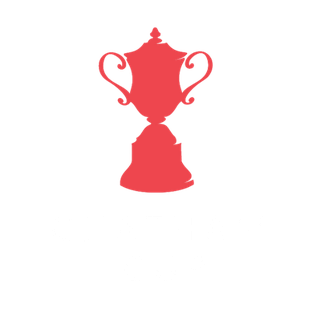Related Research Articles

The Chatham Cup is New Zealand's premier knockout tournament in men's association football. It is held annually, with the final contested in September. The current champions of the Chatham Cup are 2023 winners Christchurch United, who defeated Melville United AFC on penalties in the final.
The 1970 New Zealand National Soccer League was the inaugural season of a nationwide round-robin club competition in New Zealand football. The league's initial sponsors were Rothmans (NZ) Ltd, and the league was thus commonly known as the Rothmans National League. Rothmans retained naming sponsorship rights until 1987 when Air New Zealand took over as principal sponsor.
The 1971 New Zealand National Soccer League was the second season of a nationwide round-robin club competition in New Zealand football. The league was expanded at the end of the inaugural season, so there was no relegation from the 1970 league season. Hungaria, who had competed in the inaugural season, combined with Miramar Rangers to form a new composite league team, Wellington City. Though Miramar withdrew from the team after the 1971 season, the team continued to use the new name.
The 1972 New Zealand National Soccer League was the third season of a nationwide round-robin club competition in New Zealand football.
The 1974 New Zealand National Soccer League was the fifth season of a nationwide round-robin club competition in New Zealand football.
The 1975 New Zealand National Soccer League was the sixth season of a nationwide round-robin club competition in New Zealand football.
The 1976 New Zealand National Soccer League was the seventh season of a nationwide round-robin club competition in New Zealand football.
The 1977 New Zealand National Soccer League was the eighth season of a nationwide round-robin club competition in New Zealand football. An expansion by two teams meant that it was the first year in which twelve teams took part. Prize money was significantly increased for the top three clubs, and the number of teams relegated increased from one to three, these being automatically replaced by the winners of the three regional leagues.
The 1978 New Zealand National Soccer League was the ninth season of a nationwide round-robin club competition in New Zealand football. A change was made from previous years, with the replacement of goal average by goal difference as a means for ranking teams equal on points.
The 1979 New Zealand National Soccer League was the tenth season of a nationwide round-robin club competition in New Zealand football. It produced the biggest winning margin in the league's history, with Mount Wellington never being in serious danger of finishing anywhere but first.
The 1980 New Zealand National Soccer League was the 11th season of a nationwide round-robin club competition in New Zealand football. Mount Wellington became the first club to win back-to-back titles and also the first club to win the league four times, though their winning margin was significantly smaller than in 1979.
The 1981 New Zealand National Soccer League was the 12th season of a nationwide round-robin club competition in New Zealand football. Wellington Diamond United won the league for a second time, having previously been champions in 1976. The league was the closest until this point, with only four points separating the top five teams.
The 1982 New Zealand National Soccer League was the 13th season of a nationwide round-robin club competition in New Zealand football. Mount Wellington comfortably won the league for a fifth time, finishing seven points clear of second-placed Hanimex North Shore United. This was the last season in which a win scored two points; from 1983 wins were worth three points.
The 1983 New Zealand National Soccer League was the 14th season of a nationwide round-robin club competition in New Zealand football. Manurewa comfortably won the league for the first time, finishing eight points clear of second-placed Hanimex North Shore United. This was the first season in which a win scored three points; prior to this they were worth only two.
The 1984 New Zealand National Soccer League was the 15th season of a nationwide round-robin club competition in New Zealand football. Gisborne City finally wrestled the trophy away from the major centres, taking it to a provincial city for the first time.
The 1985 New Zealand National Soccer League was the 16th season of a nationwide round-robin club competition in New Zealand football. Wellington Diamond United finished as champions, three points clear of 1984 title-holders Gisborne City.
The 1986 New Zealand National Soccer League was the 17th season of a nationwide round-robin club competition in New Zealand football. Mount Wellington finished as champions, one point ahead of Miramar Rangers.
The 1987 New Zealand National Soccer League was the 18th season of a nationwide round-robin club competition in New Zealand football. It was the first season in which 14 teams competed in the league, up from 12 in the previous season, and was also the first season with new sponsors Air New Zealand, leading to it being called the Air New Zealand Soccer League. Christchurch United finished as champions, seven points clear of Gisborne City.
The 1989 New Zealand National Soccer League was the 20th season of a nationwide round-robin club competition in New Zealand football. Napier City Rovers had their debut championship win over Mount Maunganui, in doing so taking the title away from the main centres for only the second time.
The 1990 New Zealand National Soccer League was the 21st season of a nationwide round-robin club competition in New Zealand football. Waitakere City won the league for the first time, by two points over Auckland neighbours Mount Wellington.
References
- ↑ "New Zealand 1972".
- ↑ Hilton (1991), p. 88
- 1 2 Hilton (1991), pp. 88-89